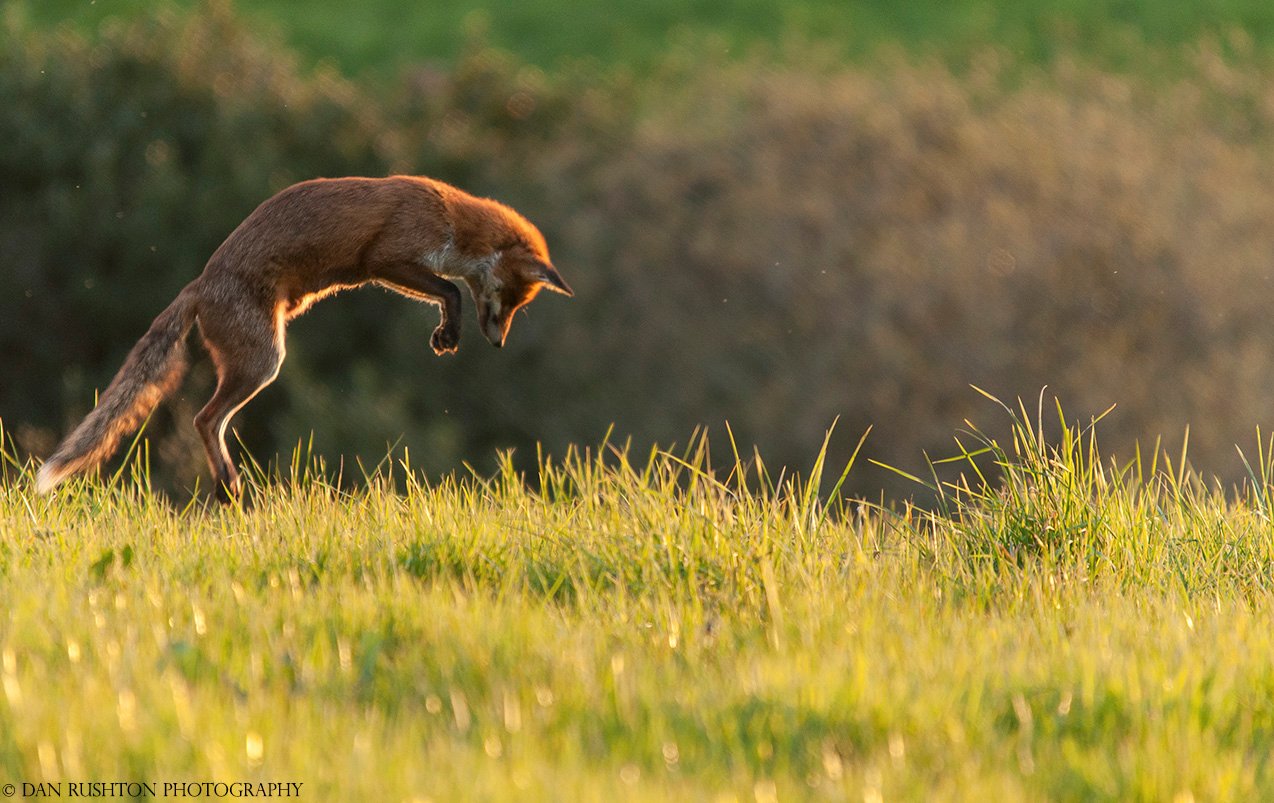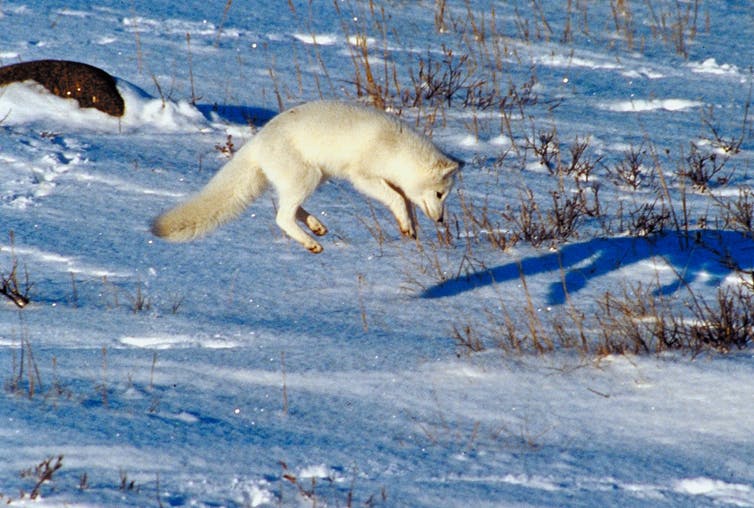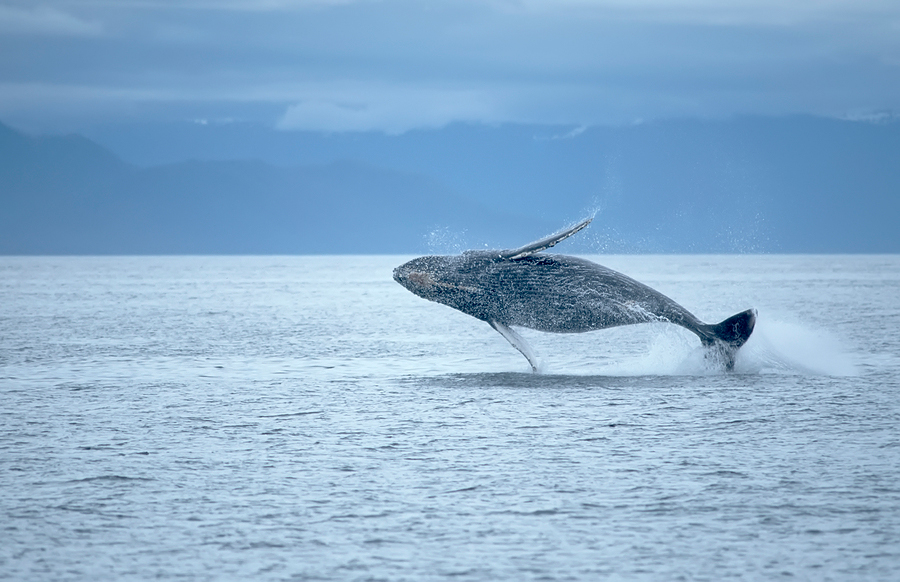Welcome to DU!
The truly grassroots left-of-center political community where regular people, not algorithms, drive the discussions and set the standards.
Join the community:
Create a free account
Support DU (and get rid of ads!):
Become a Star Member
Latest Breaking News
Editorials & Other Articles
General Discussion
The DU Lounge
All Forums
Issue Forums
Culture Forums
Alliance Forums
Region Forums
Support Forums
Help & Search
Science
Related: About this forumFoxes' skulls are specially adapted for diving into snow
Foxes' skulls are specially adapted for diving into snow
Red foxes and Arctic foxes dive headfirst into snow at up to 4 metres per second to catch small rodents, and the shape of their snouts reduces the impact force
By Chen Ly
29 April 2024

A red fox about to dive into the snow to catch prey
Maxime Riendeau/Getty Images
Some foxes can dive headfirst into snow without harm, and now we know how their skull shape is adapted for this technique.
In cold climates, where small rodents live deep under the snow, red foxes (Vulpes vulpes) and Arctic foxes (Vulpes lagopus) have a specialised hunting technique known as mousing. They use their strong sense of hearing to pinpoint the location of prey, jump into the air and then dive face-first into large piles of snow at speeds of up to 4 metres per second to catch them by surprise.
“It’s a very interesting and unique behaviour,” says Sunghwan Jung at Cornell University in New York. “Not all foxes do it either.”
To learn more about why red and Arctic foxes are so adept at snow-diving, Jung and his colleagues scanned the skulls of 13 fox species as well as those of other mammals, such as lynx and pumas, from museum collections.
[...]
Journal reference:
PNAS DOI: 10.1073/pnas.2321179121
Red foxes and Arctic foxes dive headfirst into snow at up to 4 metres per second to catch small rodents, and the shape of their snouts reduces the impact force
By Chen Ly
29 April 2024

A red fox about to dive into the snow to catch prey
Maxime Riendeau/Getty Images
Some foxes can dive headfirst into snow without harm, and now we know how their skull shape is adapted for this technique.
In cold climates, where small rodents live deep under the snow, red foxes (Vulpes vulpes) and Arctic foxes (Vulpes lagopus) have a specialised hunting technique known as mousing. They use their strong sense of hearing to pinpoint the location of prey, jump into the air and then dive face-first into large piles of snow at speeds of up to 4 metres per second to catch them by surprise.
“It’s a very interesting and unique behaviour,” says Sunghwan Jung at Cornell University in New York. “Not all foxes do it either.”
To learn more about why red and Arctic foxes are so adept at snow-diving, Jung and his colleagues scanned the skulls of 13 fox species as well as those of other mammals, such as lynx and pumas, from museum collections.
[...]
Journal reference:
PNAS DOI: 10.1073/pnas.2321179121
==========
https://www.pnas.org/doi/abs/10.1073/pnas.2321179121
Effect of skull morphology on fox snow diving
[...]
InfoView thread info, including edit history
TrashPut this thread in your Trash Can (My DU » Trash Can)
BookmarkAdd this thread to your Bookmarks (My DU » Bookmarks)
3 replies, 12129 views
ShareGet links to this post and/or share on social media
AlertAlert this post for a rule violation
PowersThere are no powers you can use on this post
EditCannot edit other people's posts
ReplyReply to this post
EditCannot edit other people's posts
Rec (4)
ReplyReply to this post
3 replies
 = new reply since forum marked as read
Highlight:
NoneDon't highlight anything
5 newestHighlight 5 most recent replies
= new reply since forum marked as read
Highlight:
NoneDon't highlight anything
5 newestHighlight 5 most recent replies
Foxes' skulls are specially adapted for diving into snow (Original Post)
sl8
Apr 2024
OP
bluedigger
(17,141 posts)1. I watched my dog try that out in the hay field yesterday.
Her pittie face did not help her catch anything. ![]()
Judi Lynn
(162,290 posts)2. I always assumed they were simply playing! Fits of exultation!







lark
(24,042 posts)3. Cats around here have an interesting technique for catching moles & voles.
They jump up like the foxes only they jump around in small circles, hitting the ground hard to drive out the critters. Then they dive for it's head and try to catch them or if that doesn't work, they'll try digging it out and that usually works well for them. One of our neighbors has a plot of land that he leaves in a natural state and the cats love hunting there. We've watched a number of cats use this technique, including ours.